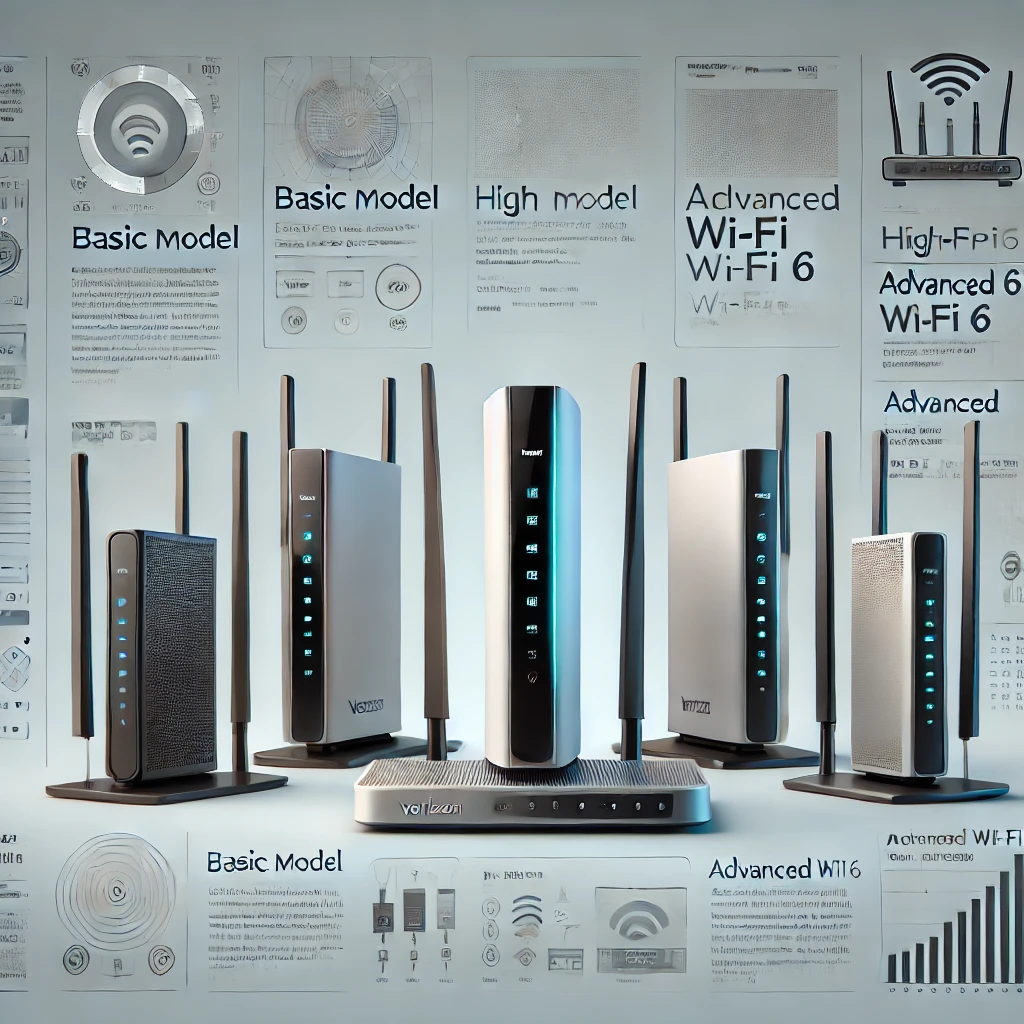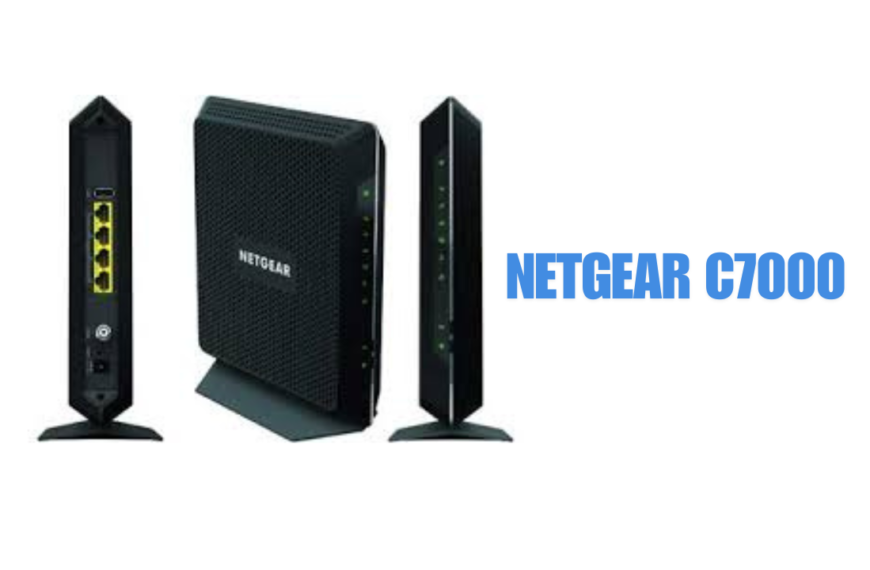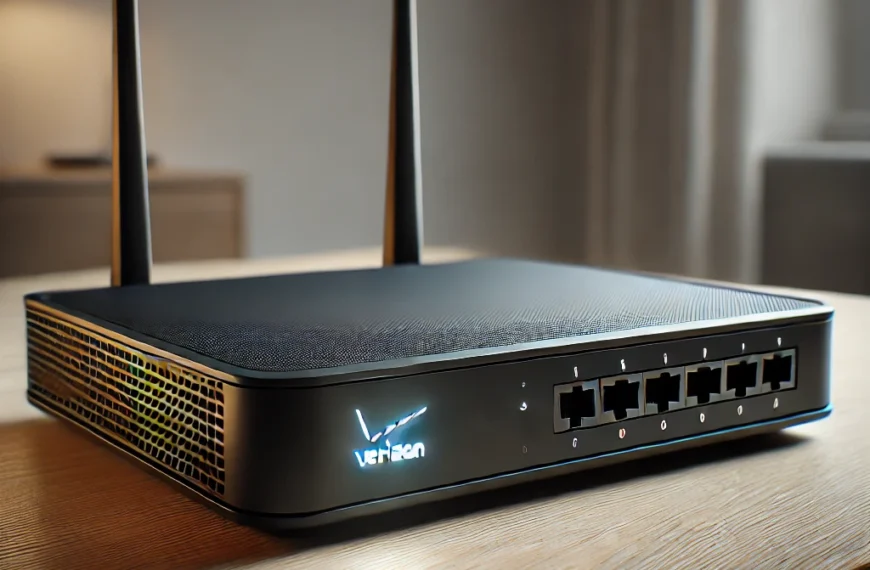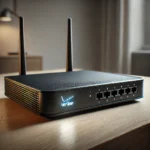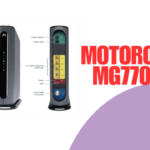In today’s connected world, the router plays a central role in any home network. Whether you’re streaming your favorite TV shows, working from home, gaming, or simply browsing the internet, your router is the device that makes it all possible. For those using Verizon Fios, their range of routers offers reliable, high-speed connectivity for homes of all sizes. Verizon routers, such as the Fios Quantum Gateway and the Fios G3100, are designed to provide fast and stable internet connections to multiple devices simultaneously, ensuring a smooth online experience.
However, selecting the right router can be a daunting task, especially with so many options available. It’s crucial to choose a router that suits your specific needs in terms of speed, coverage, and features. The right router can enhance performance, prevent slowdowns, and offer better security, which is vital in an age where privacy and data protection are top priorities. A well-chosen router ensures your home network is optimized, delivering the best possible experience whether you’re browsing, gaming, or working online. In this guide, we’ll explore Verizon routers, compare them to other leading brands, and discuss how to upgrade or choose the best router for your needs.
Overview of Verizon Routers
Verizon offers a range of high-performance routers, primarily designed for use with its Fios internet service. These routers provide reliable connectivity for households looking to maximize their internet speed and range. Verizon routers stand out for their integration with the Fios fiber-optic network, offering exceptional speeds that traditional DSL or cable connections can’t match. Key features include advanced Wi-Fi technology, support for multiple devices, and robust security features, all of which work together to create a seamless online experience.
Verizon’s routers are engineered to cater to different types of users—from everyday internet users to gamers and remote workers. With a focus on speed, coverage, and reliability, Verizon’s routers are equipped with features like dual-band Wi-Fi, smart wireless technology, and security protocols to help safeguard your network. These routers are specifically designed to ensure that Fios customers get the most out of their high-speed internet service, enabling them to stream HD content, play online games, and work from home without lag or interruptions.
Popular Verizon Router Models
Verizon offers several popular router models, each with unique features tailored to different needs.
- Verizon Fios Quantum Gateway: The Fios Quantum Gateway is a popular choice for Fios customers, providing fast internet speeds and robust Wi-Fi coverage. With advanced features like dual-band support, it allows devices to connect to either the 2.4 GHz or 5 GHz band, depending on their requirements. The router’s high-speed capabilities make it perfect for households with multiple devices or for those who frequently stream HD video or play online games. It also supports the latest wireless standards (Wi-Fi 5) and has a solid built-in firewall for improved security.
- Verizon Fios G3100 Router: The Fios G3100 is another high-performance model that offers even more advanced features compared to the Quantum Gateway. It supports Wi-Fi 6 (the latest wireless standard), which offers better overall speeds, reduced latency, and improved performance when connecting multiple devices. This model is particularly well-suited for larger homes or smart homes with many connected devices, as Wi-Fi 6 allows for better handling of network congestion and provides faster speeds over longer distances. Additionally, the G3100 features a more modern design with improved antenna placement for better signal distribution.
- Verizon Fios G1100 Router: The Fios G1100 is an older model compared to the G3100 but still delivers reliable performance for smaller households or lighter internet users. While it doesn’t support Wi-Fi 6, it does provide solid Wi-Fi 5 speeds and features like dual-band Wi-Fi and security protocols. It’s a budget-friendly option for those who don’t need the latest technology but still want a dependable router for everyday internet activities such as browsing and streaming.
Comparison of these models:
- Speed: The G3100 outperforms the Quantum Gateway and the G1100, especially in terms of speeds over longer distances, thanks to Wi-Fi 6. While the G1100 is suitable for basic use, the Quantum Gateway and G3100 are both capable of supporting higher-speed plans from Verizon.
- Range: The G3100 offers the best range, with improved coverage due to its advanced technology and design. The Quantum Gateway offers solid coverage for medium-sized homes, while the G1100 is best suited for smaller spaces or fewer connected devices.
- Compatibility: All three routers are compatible with Verizon Fios service, but the G3100 offers the most future-proof option with its support for Wi-Fi 6. The Quantum Gateway and G1100 may still be sufficient for users with less demanding network needs, but the G3100 is a better choice for those who want faster speeds and greater capacity for multiple devices.
How to Choose the Right Verizon Router for Your Needs
Choosing the right router depends on a variety of factors including your internet speed requirements, the number of devices in your household, and how you use the internet. Here are some key considerations when selecting a Verizon router:
- Speed: If you require fast internet speeds for activities like 4K streaming, online gaming, or working from home with large file transfers, a router that supports high speeds is essential. In this case, the Fios G3100 with Wi-Fi 6 support is the best choice, as it can handle heavy internet usage and multiple devices at once.
- Number of Devices: The number of devices connected to your network will also impact your router choice. If you have a large household with many devices (smartphones, tablets, smart TVs, gaming consoles, etc.), you’ll want a router that can handle multiple simultaneous connections without sacrificing performance. The G3100 and the Quantum Gateway are great choices for homes with many devices, while the G1100 is better for lighter usage.
- Streaming and Gaming: For those who prioritize smooth streaming or online gaming, a router with dual-band Wi-Fi (at least) and low latency is important. The G3100’s Wi-Fi 6 capabilities make it an excellent choice for both gaming and streaming, as it offers faster speeds and handles congestion better than older models.
- Home Size: Larger homes may require a router with a stronger signal and broader coverage area. In this case, the G3100 or Quantum Gateway will provide more extensive coverage than the G1100, especially in multi-story or large homes.
Comparing Verizon Routers with Other Leading Brands
When comparing Verizon routers to popular alternatives like Netgear, TP-Link, and ASUS, there are several factors to consider:
- Speed: Verizon’s Fios G3100, with Wi-Fi 6 support, competes directly with high-end routers from brands like Netgear and ASUS. While Netgear’s Nighthawk routers and ASUS’ RT-AX series also support Wi-Fi 6 and offer similar speeds, Verizon’s routers have the added benefit of being specifically optimized for Verizon Fios service.
- Features: Verizon routers come with built-in security features and easy integration with Fios internet plans. While third-party routers from Netgear and TP-Link may offer more customization options, Verizon’s models are streamlined for users who want a simple plug-and-play experience. Verizon routers also tend to have better customer support, as they are directly tied to the Fios service.
- Customer Support: Verizon offers solid customer support for their routers, with a focus on troubleshooting Fios-related issues. Third-party router manufacturers like TP-Link and ASUS also have good support, but it’s often harder to find tailored help when issues arise with Verizon Fios specifically.
Alternatives to Verizon Routers
While Verizon’s routers are designed to work seamlessly with their Fios service, some users may prefer third-party routers for additional features or customization options. Some top alternatives compatible with Verizon Fios include:
- Netgear Nighthawk Series: Known for their high performance, especially in gaming and heavy usage environments. These routers provide excellent range, speed, and features like QoS (Quality of Service) for prioritizing gaming or streaming traffic.
- TP-Link Archer Series: A budget-friendly option with solid performance. TP-Link routers are often praised for their affordability, ease of use, and decent range.
- ASUS RT-AX Series: Offers Wi-Fi 6 routers with strong coverage and speed, ideal for larger homes or users with high-speed internet plans.
While third-party routers may offer superior customization and advanced features, they may not provide the same level of integrated support as Verizon routers. Additionally, users may need to configure them to work optimally with Fios.
How to Upgrade Your Verizon Router
Upgrading your Verizon router is a simple process but one that requires careful consideration. Here’s a step-by-step guide:
- Assess Your Needs: Determine whether your current router is meeting your needs. If you have slower speeds, coverage issues, or frequent connectivity drops, it may be time for an upgrade.
- Choose the Right Model: Based on your usage, consider upgrading to a model like the G3100 if you need faster speeds or better range. If you don’t need the latest Wi-Fi 6 features, the Quantum Gateway may suffice.
- Purchase and Unbox: Buy the new router directly from Verizon or a retailer. Unbox it carefully and keep the setup instructions.
- Disconnect the Old Router: Unplug the existing router and remove any connections.
- Connect the New Router: Plug in the new router and follow the setup instructions. You may need to log into the router’s admin panel to configure settings.
- Test the Connection: Once connected, test the internet connection to ensure everything is working as expected.
When upgrading, consider the benefits of mesh networks or Wi-Fi 6 for a future-proof solution.
Optimizing Your Verizon Router
To get the most out of your Verizon router, follow these optimization tips:
- Position the Router Centrally: Place your router in a central location to ensure maximum coverage. Avoid placing it near walls or in corners.
- Update Firmware Regularly: Check for firmware updates to improve security and performance. This can also help fix bugs or performance issues.
- Use the Right Band: Connect devices to the appropriate Wi-Fi band (2.4 GHz for long-range, 5 GHz for faster speeds).
- Change Default Settings: Modify default settings like the Wi-Fi password, SSID, and security protocol to enhance security and performance.
Troubleshooting Common Verizon Router Issues
Common issues with Verizon routers include:
- Wi-Fi Drops: This can be caused by interference or a weak signal. Move your router to a better location or switch channels on the 2.4 GHz band.
- Slow Speeds: Check for network congestion, update the router firmware, or reboot the router to resolve slow speeds.
- Connection Problems: Reset the router, check for any outages in your area, and ensure all cables are securely connected.
Read more: Arris touchstone cm8200 docsis 3.1 cable modem no power cord
Conclusion
Choosing the right Verizon router, whether upgrading or selecting a new one, is crucial for optimizing your internet experience. With options like the Fios G3100, Quantum Gateway, and G1100, users can find the model that suits their home size, usage patterns, and internet speed needs. By understanding key features, comparing models, and considering third-party alternatives, you can make an informed decision that ensures your home network runs smoothly for years to come.

